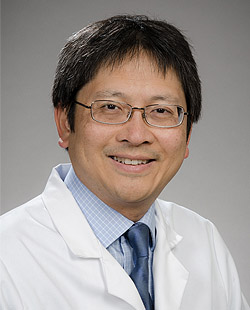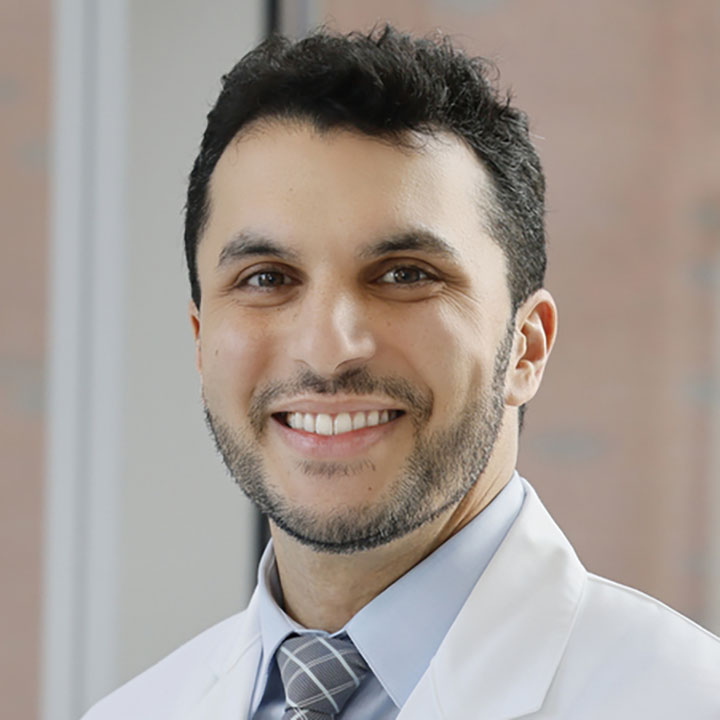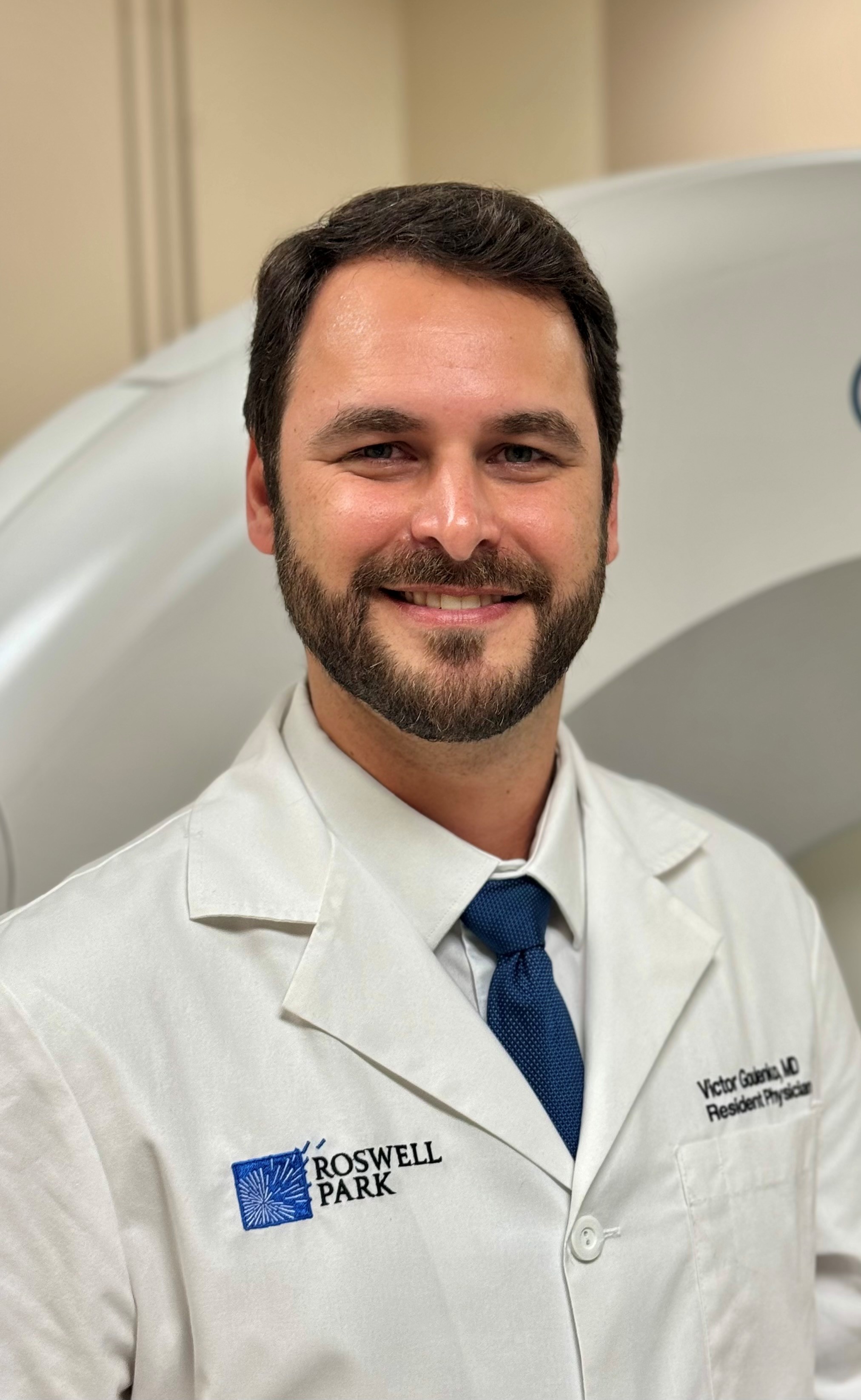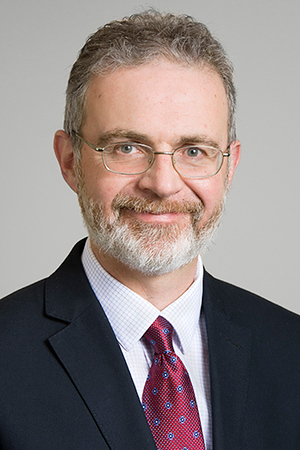Meet the Members of the Membership Committee
The purpose of the Membership Committee is to oversee and support the growth, retention and engagement of the Radiosurgery Society’s (RSS) membership. The Committee works to ensure that Society’s membership offerings are valuable, relevant and aligned with the needs of current and potential members.
Chairperson |

Simon Lo, MD
Chairperson
Dr. Simon Lo is Professor of Radiation Oncology and Neurological Surgery at the University of Washington (UW). He is also Director of SBRT at UW. Dr. Lo has edited 5 comprehensive textbooks in SRS/ SBRT in addition to 4 other comprehensive textbooks and has published close to 300 full peer-reviewed papers with a majority of which on SRS/ SBRT for all body sites, including publications in Lancet Oncology, JAMA Oncology, Science Translational Medicine, Journal of Clinical Oncology, and Neuro Oncology. He has built or led the SBRT programs in 3 NCI-designated Comprehensive Cancer Centers. He is a member of the Board of Directors and the Medical Director of the Distinction in Practice of Stereotactic Radiotherapy Accreditation Program for Radiosurgery Society. He is also Steering Committee Member for International Stereotactic Radiosurgery Society Guidelines for Extracranial Sites. Dr. Lo has led or participated in numerous guidelines in CNS tumors, spinal metastasis, bone metastasis, renal cell carcinoma, SRS, and SBRT. He is a Fellow of ACR and ASTRO. In 2019, he was granted the Lifetime Achievement Award by the Society for Palliative Radiation Oncology. He is the Past President of the Radiation Oncology Chapter of American College of Radiology. He is also a cofounder of the International Radiosurgery Consortium of the Kidney (IROCK). He is the Scientific Program Chair of American Radium Society (2024-2025). Dr. Lo has won national teaching awards (ARRO) and is a member of the American Board of Radiology Oral Examination Committee in Central Nervous System and Pediatric Tumors.Dr. Simon Lo is Professor and Vice-Chair for Strategic Planning of Radiation Oncology and Professor of Neurological Surgery as well as the Director of SBRT at the University of Washington Department of Radiation Oncology in Seattle, Washington. He is also the Co-chair of the Appointment and Promotion Committee and a member of the leadership team for Leading Academic Participating Site of NCTN, Fred Hutchinson Cancer Research Center.

Banu Atalar, MD
Prof. Dr. Banu Atalar is a Professor of Radiation Oncology at Acıbadem Mehmet Ali Aydınlar University, Istanbul, Türkiye, and currently serves as President of the Turkish Society for Radiation Oncology (2025–2027) and Chair of the National Societies Committee of ESTRO (2024–2027). She completed her residency in Radiation Oncology at Cerrahpaşa Medical Faculty and a Clinical Research Fellowship in Stereotactic Radiosurgery at Stanford University. Her clinical and research expertise focuses on central nervous system, thoracic, and gastrointestinal malignancies, with a special emphasis on stereotactic radiosurgery (SRS) and MR-guided adaptive SRS.
She has authored more than 70 peer-reviewed publications and received prestigious international recognitions, including the ASCO International Development and Education Award (IDEA) and the IASLC International Mentorship Award. Actively engaged in global oncology, Prof. Atalar has served on the Radiosurgery Society Scientific Meeting Committee, the ASCO Resource Stratified Guidelines Committee, and has led multiple educational initiatives. A frequent invited speaker and chair at major meetings such as RSS, ESTRO, PCSO, and MESTRO, she remains dedicated to advancing radiation oncology and fostering diversity, equity, and inclusion in the field.

Markus Bredel, MD, PhD
Dr. Bredel is Chairman and Sylvester Professor of Radiation Oncology of the Department of Radiation Oncology at the University of Miami’s Miller School of Medicine. Dr. Bredel is a board-certified, NIH-funded physician-scientist who focuses clinically and scientifically on central nervous system (CNS) tumors and movement and other functional disorders of the brain. Dr. Bredel previously held academic faculty positions at Stanford University School of Medicine, Feinberg School of Medicine at Northwestern University, the University of Freiburg in Germany, and the University of Alabama at Birmingham Heersink School of Medicine. In his role as Chairman, Dr. Bredel leads efforts to strategically position the Department for a successful future, making new inroads, maintaining and expanding its preeminent role in international radiation oncology, promoting and advancing career development, and supporting the tripartite mission of Sylvester and the Miller School of Medicine in life-changing and compassionate cancer care, groundbreaking and transformative research, and educating the next generation of radiation oncologists and scientists.

Alfredo Conti, MD, PhD, FEBNS
Prof. Conti, a distinguished neurosurgeon, graduated in Medicine with honors in 1997 and completed his residency in 2002. He has held various academic positions, including Associate Professor at the University of Messina and Bologna, and Visiting Professor at Charité in Berlin. He has extensive training abroad, including CyberKnife radiosurgery in California, and has authored 215 Scopus-indexed publications. Prof. Conti has received numerous prestigious awards including the EANS Aesculap prize. His clinical activity includes over 3000 surgical interventions, specializing in functional and neuro-oncological neurosurgery.

Emile Gogineni, DO
Dr. Emile Gogineni is an Assistant Professor of Radiation Oncology at The Ohio State University Wexner Medical Center and The James Cancer Hospital. He specializes in the treatment of head & neck, cutaneous, and thyroid malignancies. His clinical focuses include reirradiation, stereotactic radiation (SRS, SABR, SBRT), hypofractionation, and proton therapy. As a clinical and translational scientist, Dr. Gogineni’s research centers on the oral microbiome, salvage treatment options for recurrent head & neck cancers, and proton therapy. He develops and participates in multicenter studies and collaborates with international teams to accelerate translation of biologic and technical advances into routine care.

Victor Goulenko, MD
Dr. Victor Goulenko is a board-certified neurosurgeon and a medical resident in Radiation Oncology at Roswell Park Comprehensive Cancer Center, with expertise in CNS tumors, functional disorders, and stereotactic radiosurgery. He completed a distinguished fellowship in Gamma Knife Radiosurgery through the Leksell Society and has published peer-reviewed articles on topics such as glioblastoma, brain metastases, and functional radiosurgical techniques. With a background in neurosurgery from the Instituto Estadual do Cérebro Paulo Niemeyer in Brazil and extensive training in radiation oncology in the U.S., Dr. Goulenko offers a unique multidisciplinary approach to treating complex brain disorders. He actively participates in international research collaborations and serves on multiple academic committees, including the Radiosurgery Society’s Functional Neurosurgery Working Group and ARRO’s Education Subcommittee.

Vijayananda Kundapur, MD, FRCR
Dr. Vijayananda Kundapur is a Clinical Professor in the Department of Radiation Oncology at the Saskatoon Cancer Centre, University of Saskatchewan. He is an accomplished clinician–scientist whose work has significantly advanced the field of radiation oncology, particularly in the development and application of spatially fractionated radiation therapy (SFRT) for brain tumors.Dr. Kundapur holds a patent for a photon mini-beam collimator—a novel device designed for use on clinical linear accelerators, enabling the precise delivery of spatially fractionated radiation. His pioneering research on de novo canine brain tumors, conducted through a randomized study, has produced groundbreaking results and established preclinical foundations for translating SFRT into human clinical practice.
In addition to his innovative research, Dr. Kundapur is recognized for his clinical expertise in the management of central nervous system (CNS) tumors, lung cancers, gastrointestinal (GI) malignancies, and pediatric cancers.He was intrumental in developing stereotaxy programs in Saskatchewan. His contributions to minimizing the side effects of radiation therapy, particularly in protecting neurocognitive function during CNS irradiation, have been widely acknowledged. Dr. Kundapur has also made significant strides in improving the safety and tolerability of abdominal and pelvic radiotherapy. His work in gastrointestinal oncology led to the development of the inclined belly-board system, now marketed by CDR Company as the “KOILIA-MIKROS” system, which effectively reduces small bowel toxicity during abdominal and pelvic irradiation.

Vatsal B. Patel, MD, MBA, DABR
Dr. Vatsal B. Patel, MD, MBA, DABR, is a US Board-Certified Radiation Oncologist. After graduating from University of Connecticut with a B.S. in Molecular and Cell Biology (Summa Cum Laude/University Scholar/Honors Scholar), he pursued a combined degree in MD/MBA program at UConn. Following graduation, he did his internship at Yale and a year of Diagnostic Radiology Residency at Yale before switching careers to Radiation Oncology, completing his residency at UT Health SA MD Anderson Cancer Center.
Dr. Patel has a clean NPDB profile and is licensed to practice in the states of California, Iowa, New Mexico, Nevada, Arizona, Oregon, and holds an IMLC. He has a vast array of clinical experience across all disease sites, having practiced in high volume practices in 6 different states and held leadership role as a medical director in one job. He currently serves as the CMO and COO of a growing multi-national Nevada-based firm, I AM STILL ALIVE, LLC (http://www.iamstillalive.com) and works alongside the Founder and CEO, his wife and colorectal cancer survivor Danielle Bellini. His dream and vision is to build a one-stop solutions in oncology and an ecosystem that is focused on patients, caregivers, and survivors. He is particularly passionate about bringing elite care to underserved populations (rural America) in the US and around the world, as a subset of his much broader vision. He has taken to long-term locums lifestyle, currently working as the primary radiation oncologist (and mainly solo) at a very busy Asante Spears Cancer Center in Grants Pass (rural Southern Oregon), helping rebuild their two LINAC practice.

Matthew B. Podgorsak, PhD, FAAPM, DABMP, DABR
Matthew Podgorsak, PhD, FAAPM, is professor of oncology and chief medical physicist in the Department of Radiation Medicine at Roswell Park Comprehensive Cancer Center (RPCCC) in Buffalo, New York. He also holds an associate professor appointment in the Jacobs School of Medicine and Biomedical Sciences at the University at Buffalo (UB), and he has mentored numerous master’s and doctoral students enrolled in UB’s CAMPEP-accredited medical physics graduate program over the past 3 decades. In his clinical role, Dr. Podgorsak oversees all medical physics and dosimetry services at RPCCC and its affiliate centers located in Western and Central New York, where a combined total of over 200 patients per day receive radiation therapy. He finished his undergraduate training at McGill University in Montreal, and then went on to complete his PhD in medical physics in 1993 at the University of Wisconsin, Madison.
Over his 30 year career, Dr. Podgorsak has held leadership positions with several professional societies. In 2005, he was elected to a 3-year term as a member of the Board of Directors of the American Association of Physicists in Medicine (AAPM). In 2013, Dr. Podgorsak joined the executive committee of the AAPM through his election to a 3-year term as Treasurer. Dr. Podgorsak also previously served on the Board of Directors of the American College of Medical Physics (ACMP), and he served as president of the Upstate New York Association of Medical Physicists. He is currently a member of the medical physics advisory committees for the American College of Radiation Oncology Practice Accreditation Program (ACRO-PAP) and the Radiosurgery Society (RSS). He also currently serves as Chair of the Board of Trustees of the American Board of Radiology (ABR) and is a member of the ABR Board of Governors, and he recently began a term as the Medical Physics Officer on the RSS Board of Directors

Raj Singh, MD
Raj Singh, M.D., is an Assistant Professor of Radiation Oncology and board-certified clinical radiation oncologist at The Ohio State University Comprehensive Cancer Center and The Arthur G. James Cancer Hospital and Richard J. Solove Research Institute, with a clinical focus in central nervous system, thoracic, and pediatric malignancies (both primary and metastatic).
His undergraduate studies were completed at Duke University, where he graduated cum laude with a Bachelor's of Science in Economics with Distinction. He received his M.D. from Marshall University Joan C. Edwards School of Medicine in Huntington, WV, and completed his Transitional Year Internship at Mather Hospital (Northwell Health System) in Port Jefferson, NY. He completed his residency in Radiation Oncology at Virginia Commonwealth University Health System in Richmond, VA, and was named Chief Resident Physician his final year.
He has research interests in stereotactic ablative radiation therapy (SABR) and stereotactic radiosurgery (SRS) for oligometastatic disease and optimization of dose/fractionation schedule based on primary histology as well as patient selection, particularly in the pediatric setting, and SRS for functional intracranial applications.

James William Snider, III, MD
J.W. Snider, M.D., is a Radiation Oncologist and the Chief Medical Officer for Proton International, LLC and Partners in Healthcare Technology, LLC. He specializes in the management of patients with Sarcomas, Head and Neck Cancers, Prostate Cancer, and others. Dr. Snider's research and leadership focuses center on cutting edge technologies including Pencil Beam Scanning Proton Therapy and Spatially Fractionated Radiotherapy. Dr. Snider completed his Medical Training at Georgetown University School of Medicine; his residency at the University of Maryland Medical Center; and his Clinical/Research Proton Fellowship at the world-renowned Paul Scherrer Institute Center for Proton Therapy in Switzerland. Dr. Snider has led the Proton International Consortium of centers since its inception. He has given numerous national/international talks and published widely in peer-reviewed journals, especially regarding Proton Therapy.

Jun Yang, PhD, DABR
Dr. Jun Yang received his PhD in medial physics and medical imaging processingfrom Biomedical Engineering, University of Miami in 2006. He has participated at founding of Philadelphia Cyberknife in 2006, the first Cyberknife Center in great Philadelphia area and served as the chief physicist at Alliance Oncology 2013-2019. He founded JunXin Oncology Professional Group, an international standard oncologyprofessional services in China and serves as the director of cancer center at Foshan ChanCheng hospital.
As the adjuvant associate professor at Drexel University and a visiting professor at Fudan University, Dr. Yang has published many peer-review papers on physics, clinical and radiobiology focusing on SRS/SBRT. He also serves as the editorial board for a few journals. As a well-respected physics expert in Radiosurgery, he has participated in many professional guidelines, such as the TG-277 AAPM-RSS medical physics practice guideline for SRS-SBRT, Updated TG-135 CyberKnifeQA, White paper for radiosurgery physics, China national CyberKnife QA guidelines etc. His research focus is on ablative nature of radiosurgery on malignant and benign disease as well as utra-low radiation dose medicine.
Dr. Yang is the member of multiple professional societies. He served as the board member of the Radiosurgery Society and the chair of physics committee 2013-2021. He currently serves asthe executive board member for AERO since 2013.